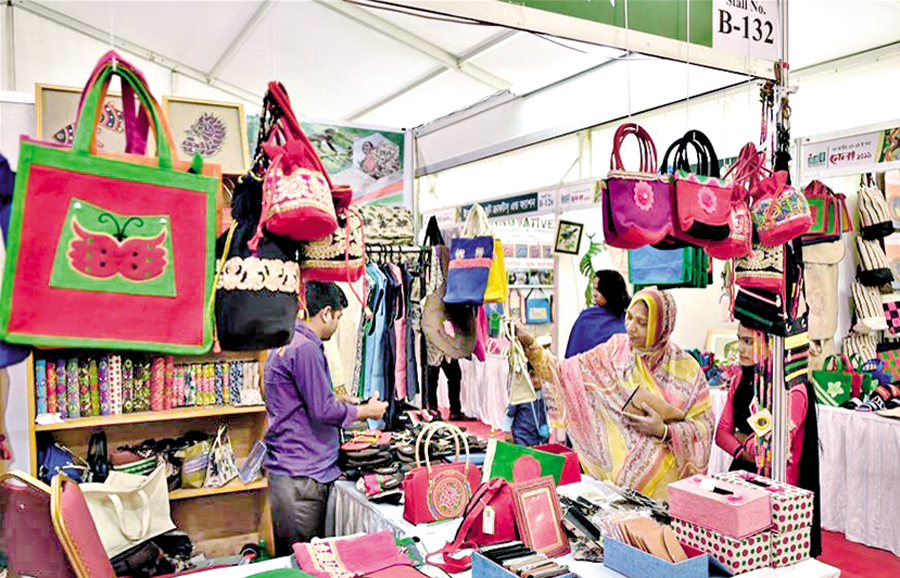
Published :
Updated :

The Small and Medium Enterprises (MSEs) account for the majority of businesses all across the world. According to the World Bank (WB), this sector represents 90 per cent businesses with 50 per cent of employment worldwide. Bangladesh is no exception to this. Nearly 10 million SMEs in this country contributes to 23 per cent of its GDP. But its share in the employment in the industrial sector is as high as 80 per cent representing 25 per cent of the labour force. But like SMEs in developing and emerging countries, such enterprises here also face constraints on way to their growth.
At a meeting held at the National Board of Revenue (NBR) on Wednesday, leaders of such enterprises and representatives of trade bodies raised their grievances against the maltreatment and unnecessary harassment meted out to them by crafty and inefficient field-level NBR officials. They complained in no uncertain terms how they are harassed even after following all formal procedures. For example, they specifically cited that the non-adjustment of advance income tax (AIT) and high turnover tax rate are proving a stumbling block to their business operation. Under Donald Trump's reciprocal tax regime businesses the world over in general are facing a hostile environment. Already at the receiving end, micro, small and medium enterprises (MSMEs) are bearing the brunt even more. It is exactly at this time, malpractices like non-adjustment of AIT and payment of tax on turnovers irrespective of profit or loss and harassment by customs and port officials during completion of export and import procedures have made operation of their enterprises even more difficult.
Well, big businesses have the opportunity of shifting to automation courtesy of the artificial intelligence (AI)-driven apps but the MSMEs stand little chance of doing so. The reason is plain and simple. According to the International Finance Corporation (IFC), 65 million firms and 40 per cent of formal MSMEs in developing countries 'have an unmet financing need of $5.2 trillion every year.' This is equivalent to 1.4 times the current level of the global MSME lending. If the informal MSMEs are included, the size of the lending gap will be far more yawning. In case of Bangladesh, unmet financing need is estimated at $2.8 billion in the sector with 60 per cent of women SMEs remaining outside the ambit of such credit. Here the number of informal MSMEs is greater than many other developing countries and the credit gap is likely to be far greater than the IFC-provided figure.
Thankfully, the WB helped Bangladesh in formulating a comprehensive SME policy known as the SME Finance Policy in 2019 with an emphasis on prioritising women SMEs. Credit also goes to the WB for undertaking a project called Access to Finance for Women SME Project. The multilateral finance body has duly supported the establishment of a credit guarantee scheme under the SME policy and helped strengthen the capacity of the regulator and sector. However, a lack of collateral has as yet stymied the growth of MSME sector. Notwithstanding the WB Group's effort to improve access to finance and find innovative steps aimed at unlocking sources of capital, not enough advance could be made in Bangladesh.
The WB's projection is that 600 million jobs will have to be created by 2030 to absorb the growing army of workers. The scenario staring in the face of Bangladesh hardly looks propitious in this respect. It is largely because of the kind of education followed at the secondary and higher secondary levels here. The prevailing mismatch between entrepreneurial demand for skills and learning skills needs to be addressed urgently in order to narrow or diminish the gap. Collateral-based lending to MSMEs also has to be made simpler and easier preferably by spot visits by financing institutions' representatives so that the deserving enterprises can have access to credit. The government can also create a separate wing of the NBR under the SME policy which will regularly monitor transactions by such enterprises. This can be done easily if a digital data base is prepared for such factories and industries. Women-run SMEs have an enviable record of repayment of loans. This shows that men will follow suit if the initial assessment is made meticulously.
In this context, there is also a need for involving private investors under the public-private partnership. Then it may be highly beneficial if the government expands facilities for short-term skilling and reskilling before the secondary curricula get ready for the purpose. Time is precious here. The more such facilities are established, the greater the chance for workers rushing for underpaid employment to enhance their eligibility to land well-paid jobs both at home and abroad. Already large industries and businesses have started introducing AI-driven apps to run their establishment. So, students at both levels must be equipped with the foundational AI knowledge.
Bangladesh has its challenges but an opportunity of window has also opened before it in the form of foreign companies and firms showing greater interests to invest here. The successful tariff negotiations with the United States of America have paved the way for such investments. So, the relocation of factories and the ones to be established soon will need workers who can meet their criteria. This should act as an incentive for preparing workers with the required skills. The interested investors can as well be made convinced of the merit in investing in local MSMEs with potential for expanding in size and diversifying products.


 For all latest news, follow The Financial Express Google News channel.
For all latest news, follow The Financial Express Google News channel.